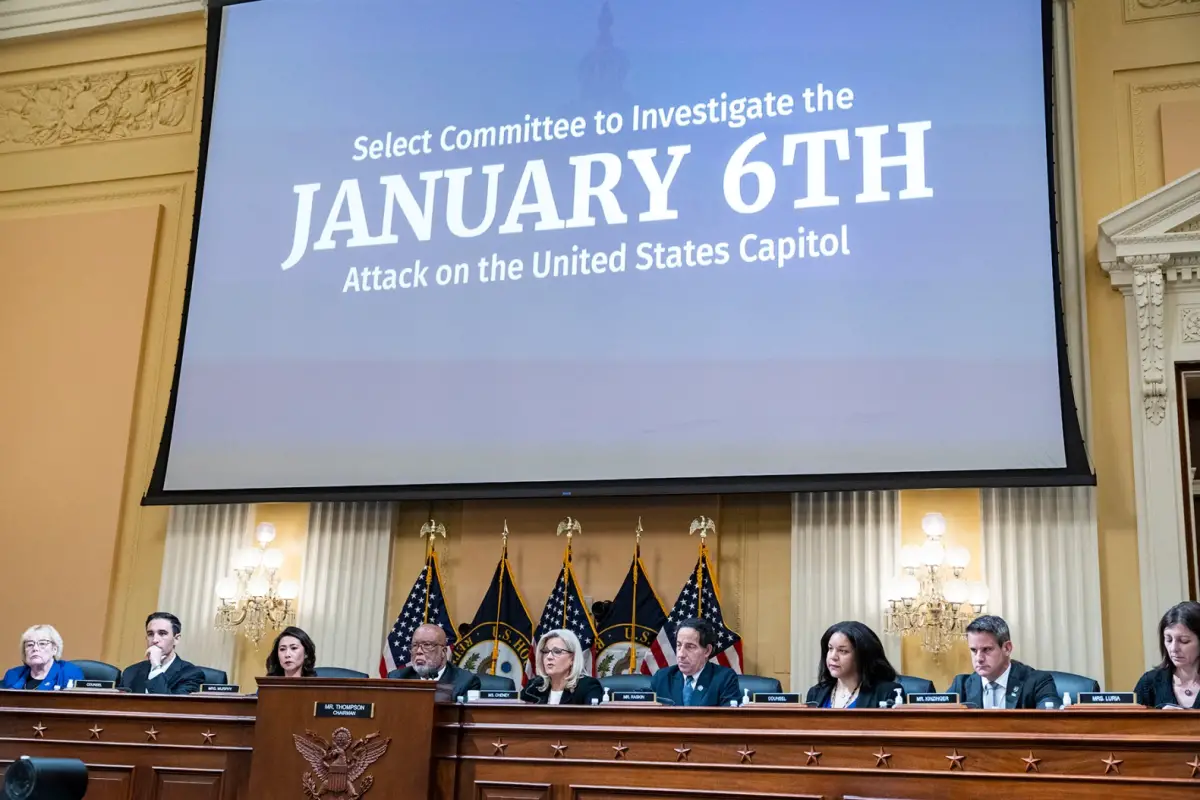Nothing to see here, right?
According to a report in the Washington Post, as the Jan. 6 committee was finishing out its politically-motivated investigation into Donald Trump and his allies, it posted a document dump that included a spreadsheet of nearly 2,000 social security numbers associated with White House visitors. These included several Trump cabinet members as well as other Trump supporters and advisors.
So far, the committee has played dumb on the matter. How does this happen?
When the House Jan. 6 committee wrapped up its work in recent weeks, it posted hundreds of records online, including interview transcripts, audio recordings and text messages.
Also buried in the massive cache was a spreadsheet with nearly 2,000 Social Security numbers associated with visitors to the White House in December 2020, including at least three members of Trump’s Cabinet, a few Republican governors and numerous Trump allies.
While the spreadsheet with the numbers was taken down Wednesday, the high-profile nature of the people whose data was exposed probably puts them at an “elevated risk” because the information would be especially useful to intelligence agencies, said James Lee, chief operating officer of the Identity Theft Resource Center, a nonprofit organization that advises victims of identity crimes and compromises.
This committee has been nothing more than a partisan witch hunt attacking any and every Trump supporter that was breathing back on January 6, 2021. How and why did they have a compiled spreadsheet laying around that contained social security numbers and other private information of former high-level government officials? That question alone seems like it’s worth getting an answer for.
To make matters worse, it’s not even clear if the individuals affected have yet been notified:
Exposed individuals don’t appear to have been notified about the leak. The Government Publishing Office (GPO), which originally published the file, did not respond to a request for comment on whether it planned to notify people whose Social Security numbers were exposed.
“To my knowledge, we were not notified. The governor was not notified,” said Ian Fury, a spokesman for South Dakota Gov. Kristi L. Noem (R). Social Security numbers were listed alongside the names of Noem, her husband and her three children.
Kayleigh McEnany, former White House Press Secretary for Donald Trump, was awoken last week to a text message filled with vulgar harassment followed up by a message containing her social security number, a situation likely stemming directly from the J6 committee leak. McEnany described her ordeal Friday on the Mark Levin radio show.
Gov. Kristi Noem, of South Dakota, was another high-level official also affected and is currently fighting for more information:
My lawyers have asked the @WhiteHouse, the @USNatArchives, and @BennieGThompson which of them is responsible for leaking the Social Security Numbers of me, my husband, my 3 kids, and my son-in-law.
What specific measures and remedies will be taken to protect our identities? pic.twitter.com/HWBu5ukWPP
— Kristi Noem (@KristiNoem) January 6, 2023
Noem was never related to the Trump administration nor was she ever a cabinet member or advisor, why would her information even be on the list? Furthermore, as her Tweet notes, why does the J6 committee have the social security numbers of her husband and children on file?
Apparently, according to the report, the information was contained in White House visitor logs. Again, however, one has to ask why, at the very least, social security numbers and information for any individual, especially children, not involved in the J6 investigation wouldn’t have been immediately deleted or redacted when the information was obtained to avoid this exact scenario.
Fox News also listed several other high-profile officials affected by the leak:
Those whose Social Security information was made public include South Dakota Gov. Kristi Noem (R) and her family, Texas Gov. Greg Abbott (R), South Carolina Gov. Henry McMaster (R), former Health and Human Services Secretary Alex Azar, and former Housing and Urban Development Secretary Ben Carson.
According to the Government Publishing Office (GPO), which posted the J6 data dump online, the original content came directly from members of Congress and it’s their responsibility to ensure private or sensitive information is redacted:
GPO spokesman Gary Somerset said in a statement that the office “does not edit or alter materials provided by Congress for publication.” As a “temporary measure,” the GPO had removed the logs from its site while “our teammates scan other documents” for personally identifiable information, Somerset said.
When asked for comment by the Washington Post, the J6 committee members themselves are playing dumb:
A spokesperson for Thompson, the committee’s chairman, did not provide comment. Former congressman Adam Kinzinger (R-Ill.), a member of the committee, said he wasn’t aware of the release of Social Security numbers and didn’t know how it happened.
“Obviously it’s something we’ll have to look into,” he said. “It’s unfortunate.”
They have no comment but think it’s “unfortunate” that high-profile former government officials are now being targeted for harassment and identity theft. Isn’t that a security issue the J6 committee created by performing this data dump that contained this sensitive information?
Was it intentional or accidental? Given the bumbling nature of this committee and the way it has functioned as a politically motivated attack dog for Democrats, it’s easy to believe there is a level of incompetence but it can’t be ruled out as an intentional act. If the committee was unable to unearth any groundbreaking details that result in criminal charges, the least they can do is leak information to harass and intimidate anyone associated with Donald Trump.
Will anyone be held responsible? Not likely. If a bank mishandled information like this, it would be fined and forced to notify affected individuals and tasked with cleaning up the data breach.
The government has more data than anyone and it’s often the worst at keeping that data safe and secure.
